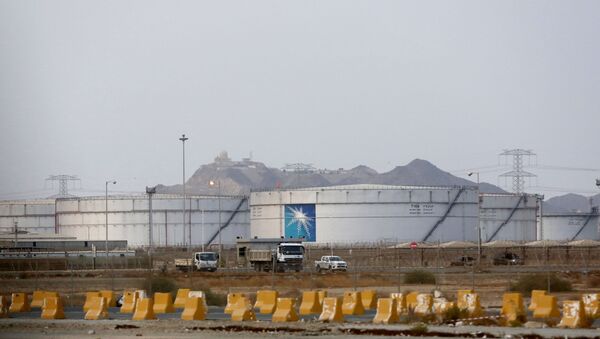The Saudi Press Agency reported the fire was the "result of a terrorist attack with a projectile" and that fire fighting crews had successfully extinguished the fire. Petroleum supplies were not affected by the attack.
Earlier on Monday, Brig. Gen. Yahia Sarea, a spokesperson for Yemen's Houthi movement, with which Saudi Arabia has been at war since 2015, announced the attack had taken place, noting it was carried out with a new Quds-2 "winged missile." The Quds-1 is a type of suicide drone.
Saudi Brig. Gen. Turki Al-Maliki, a spokesperson for the Saudi-led coalition fighting the Houthis, said the attack "does not target the national capabilities of the Kingdom, but rather targets the nerve of the global economy and its supplies as well as global energy security."
The attack follows another earlier this month against a Saudi oil platform near Jizan, in the Red Sea near the border with Yemen, and two last year in Abqaiq and Khourais that paralyzed Saudi oil production for several days in Eastern Province.
The latter has been claimed by the Houthis, but while a Saudi investigation was inconclusive as to who was responsible, US intelligence quickly and firmly pointed the finger at Iran, claiming the Islamic Republic had directly carried out the suicide drone attack. The Houthis have offered no comment on the Jizan attack.


